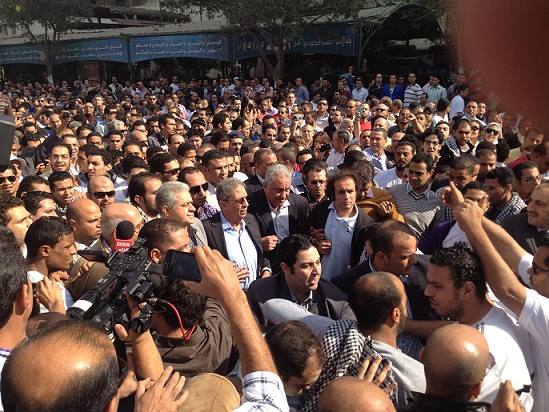Three years ago this month, international terrorism struck Europe. In simultaneous bomb attacks against trains in Madrid, Islamist terrorists killed 191 people and wounded over 2,000. Last month the suspects went on trial in a Spanish court. Violent extremists claiming to act in the name of Islam have hit many countries around the world, before and after the attacks on the United States on September 11, 2001. But the attacks in Madrid – and in London in July 2005 – showed that Europe is one of their prime targets, prompting European governments to respond by bolstering their defenses, including at the level of the European Union. In the past three years, security standards at European ports and airports have been strengthened, biometric passports have been introduced, and terrorist financing targeted. More than 2,000 terrorism suspects and those suspected of other major forms of crime have been arrested and extradited on the basis of a European Arrest Warrant. Similarly, European security and intelligence services have pooled resources in a common center for threat analysis in Brussels. Through Europol and Eurojust, European police forces and judicial authorities have intensified cooperation, and ministers are preparing to grant law enforcement agencies of other EU countries access to national databases of DNA and fingerprints. For the first time, security-related research figures prominently in the EU budget, with over $1.8 billion earmarked for this purpose. European police and security agencies have prevented many terrorist attacks. But, while Europe’s defenses have been considerably strengthened, the threat of terrorism has not diminished. The risk of new attacks in Europe and worldwide is serious and will remain so for the foreseeable future. To face this global threat, international cooperation must be improved. In particular, Muslims and non-Muslims need to combine their efforts to defend the sanctity of human life. First, the world must work from common standards. Many countries still need to improve their defenses and implement the 16 counter-terrorism instruments established by the United Nations, including the convention against terrorist financing. Reducing the risk of terrorists obtaining weapons of mass destruction equally requires stronger international cooperation. To this end, the EU is working closely with partners from Morocco to Indonesia, including Saudi Arabia and other Gulf states. The EU will extend support to the African Union’s Center for Counter-Terrorism in Algiers. Cooperation with India, Pakistan, and Russia has also been strengthened, and the EU will continue to work closely with the US, Japan, and Australia. Second, more must be done to address the international conflicts that terrorists seek to exploit. Afghanistan remains a critical front-line state in the fight against terrorism. The Taliban must not be allowed to take Afghanistan back in time. The EU will increase its aid, notably in support of the Afghan police. Likewise, efforts to bring peace to the Middle East remain essential. While progress on the road to peace between Israel and the Palestinians would not by itself stop terrorism, it would deal a powerful blow to terrorist incitement and propaganda. Javier Solana, the EU high representative for the common foreign and security policy, will continue to press for results. Third, we must counter the ideology of the terrorists. Very few Muslims want to live under a 7th century-style caliphate. They prefer to live in freedom and in parliamentary democracies. What unites Muslims and non-Muslims is a commitment to basic human rights. To respect and promote human rights is critical to winning the battle for hearts and minds, including in Europe. This means that governments need to practice what they preach. Detention without trial is counterproductive in the fight against terrorism. So is torture. To defeat the terrorists we must offer a vision of a more just and equitable world and act accordingly, at home and abroad. Ultimately, the values of liberty and justice are our best defense. Gijs de Vriesis the EU counter-terrorism coordinator. THE DAILY STAR publishes this commentary in collaboration with Project Syndicate (www.project-syndicate.org).

